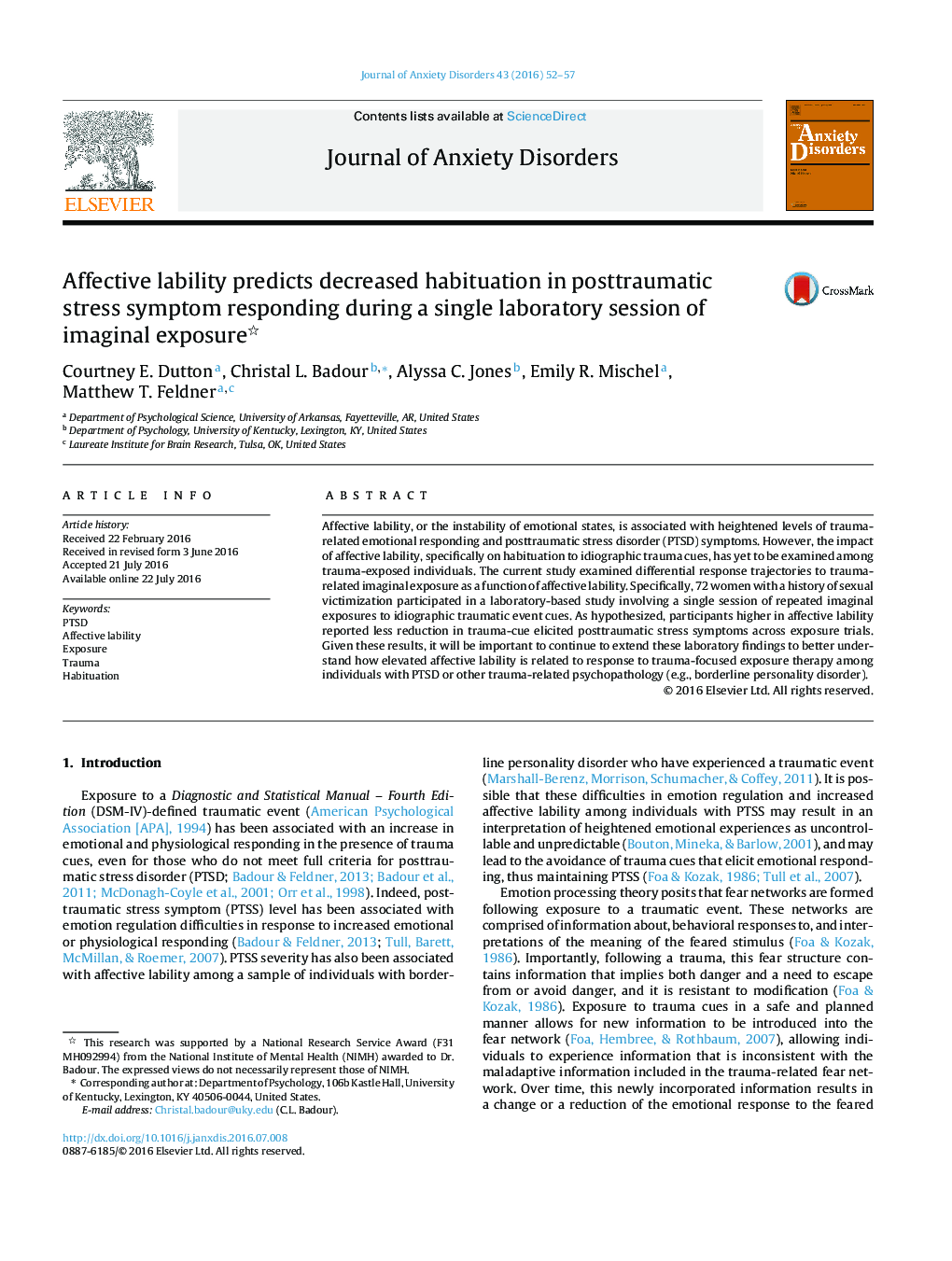| کد مقاله | کد نشریه | سال انتشار | مقاله انگلیسی | نسخه تمام متن |
|---|---|---|---|---|
| 909202 | 1473035 | 2016 | 6 صفحه PDF | دانلود رایگان |
• Affective lability is associated with PTSS, but its impact on habituation to idiographic trauma cues has not been examined.
• Affective lability was examined during a single laboratory session of imaginal exposure to idiographic trauma cues.
• Higher levels of affective lability were associated with less reduction in PTSS across exposure trials.
Affective lability, or the instability of emotional states, is associated with heightened levels of trauma-related emotional responding and posttraumatic stress disorder (PTSD) symptoms. However, the impact of affective lability, specifically on habituation to idiographic trauma cues, has yet to be examined among trauma-exposed individuals. The current study examined differential response trajectories to trauma-related imaginal exposure as a function of affective lability. Specifically, 72 women with a history of sexual victimization participated in a laboratory-based study involving a single session of repeated imaginal exposures to idiographic traumatic event cues. As hypothesized, participants higher in affective lability reported less reduction in trauma-cue elicited posttraumatic stress symptoms across exposure trials. Given these results, it will be important to continue to extend these laboratory findings to better understand how elevated affective lability is related to response to trauma-focused exposure therapy among individuals with PTSD or other trauma-related psychopathology (e.g., borderline personality disorder).
Journal: Journal of Anxiety Disorders - Volume 43, October 2016, Pages 52–57
